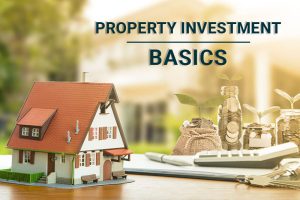
Are you dreaming of a comfortable retirement in Australia? You’re not alone! Many Australians are considering property investment as a key strategy to secure their financial future.
In this article, we’ll guide you through the exciting world of property investment, covering the basics, assessing your financial situation, calculating costs, building a property portfolio, leveraging superannuation funds, and seeking professional advice.
Let’s dive in and explore “how much do I need to invest in property” to achieve a comfortable retirement lifestyle!
Key Takeaways
- Experience the thrilling risks and immense rewards of property investment!
- Diversify investments to maximize returns & reduce risk for a comfortable retirement.
- Leverage Superannuation Funds, seek professional advice & explore financing options to reach your goals!
Understanding Property Investment Basics
 Propertyroperty investment is an excellent strategy for those looking to build a long-term, sustainable wealth portfolio. The excitement lies in the possibility of generating income or profit through the purchase of a variety of real estate properties, such as residential homes, commercial buildings, or plots of land.
Propertyroperty investment is an excellent strategy for those looking to build a long-term, sustainable wealth portfolio. The excitement lies in the possibility of generating income or profit through the purchase of a variety of real estate properties, such as residential homes, commercial buildings, or plots of land.
By renting out these properties or selling them at a higher price in the future, investors can see a significant return on their investment. This strategy also offers the added benefit of supplementing the age pension, ensuring continued financial stability well into the future.
The potential for growth and profit is vast, making property investment an exciting prospect for anyone looking to secure their financial future.
This long-term strategy can help build wealth and secure financial stability, including supplementing the age pension.
Types of Properties
There are several types of properties for you to consider investing in:
- Residential homes
- Commercial buildings
- Industrial properties
- Agricultural properties
Each type has its unique investment potential and risks, so it’s essential to choose wisely based on your goals and financial situation.
Residential properties are typically used for living purposes, while commercial properties are used for business purposes. Industrial properties serve industrial purposes, such as warehouses and factories. Agricultural properties include farms and ranches.
Choosing the correct property type carefully can pave the way for a comfortable retirement and enhanced government benefits, especially for those who need to retire and secure their pre retirement income.
Financing Options
When it comes to financing your property investment, you have several options, such as:
- Traditional mortgages: offer the lowest interest rates and the longest repayment terms
- Home equity loans: secured against the value of the property
- Private loans
Private loans have the following characteristics:
- They are typically unsecured
- They have higher interest rates
- These financing options cater to property investment, supplementing the government-age pension, and helping meet your retirement goals.
Risks and Rewards
Property investment comes with its risks and rewards. Some of the risks include market fluctuations, tenant issues, and legal issues, but the rewards can be well worth it.
Capital gains, rental income, and tax benefits are all potential rewards for property investors. Additionally, investing in property can help you afford private health insurance during your retirement, ensuring you’re well taken care of.
Assessing Your Financial Situation
 A careful assessment of your financial situation is a pre-requisite before stepping into property investment. This includes evaluating your current assets and liabilities, setting realistic savings and investment goals, and understanding your risk tolerance.
A careful assessment of your financial situation is a pre-requisite before stepping into property investment. This includes evaluating your current assets and liabilities, setting realistic savings and investment goals, and understanding your risk tolerance.
A personalized investment strategy that aligns with your retirement goals can be developed by giving thoughtful consideration to factors such as the asfa retirement standard and your desired retirement income.
Current Assets and Liabilities
To determine your net worth and borrowing capacity, start by evaluating your current assets and liabilities.
Your assets include:
- Cash
- Investments
- Real estate, including your own home
- Other possessions
Your liabilities are any debts or obligations you owe.
Subtract your total liabilities from your total assets to calculate your net worth. This vital step helps you understand how much you can afford to invest in property for a comfortable retirement in Australia.
Savings and Investment Goals
Set realistic savings and investment goals for a comfortable retirement by estimating how much money you’ll need. Consider factors like your desired retirement lifestyle, average life expectancy, and your annual income, as well as the amount of risk you’re willing to take.
Bear in mind, the ideal retirement savings goal is unique for each individual, thus tailoring your goals to match your financial situation and personal objectives becomes essential.
Risk Tolerance
Understanding your risk tolerance is crucial when developing your property investment strategy. Risk tolerance is a measure of how comfortable you are with taking on risk. Your attitude towards risk and the amount of risk you’re willing to take on can significantly influence the type of property you invest in, the amount of money you invest, and the strategies you use to manage your investments.
A pre-eminent step before making any decisions about your property investments is to assess your risk tolerance. Consider the following points.

Calculating Property Investment Costs
 Calulating the associated costs is a vital step to take before investing in property. These include the purchase price, transaction fees, and ongoing expenses.
Calulating the associated costs is a vital step to take before investing in property. These include the purchase price, transaction fees, and ongoing expenses.
Property taxes must be taken into account, and in some areas, special taxes may apply. In addition to property taxes, there will be fees for insurance and utilities. Furthermore, periodic repairs or improvements should be included in the calculations to make sure that the investment is within budget. All of these expenses need to be taken into consideration before committing to a purchase so that the investor can be sure they are making a sound financial decision.
In addition to the financial aspects of investing in property, there are various legal issues to consider. This includes researching zoning regulations, building codes, and other restrictions that may apply. It is important to make sure that any improvements or renovations comply with local laws before undertaking them. Furthermore, it is essential for investors to understand any contracts and leases they may be signing to ensure that their rights are protected.
Finally, investing in property requires research into the local market. This includes researching the average rates for rental properties, sales prices of similar homes in the area, and the overall trends of the region. Understanding these factors will help investors make informed decisions when making an offer on a property.
Understanding these costs enables you to make informed decisions about property investment and ensures you have enough funds to cover them.
Purchase Price
The purchase price of a property can vary greatly, depending on factors like:
- Location
- Size
- Condition
- Market demand
Research specific properties or consult with a real estate agent to get an accurate estimate of the purchase price.
Determining the purchase price provides a clearer understanding of its effect on your overall investment strategy.
Transaction Fees
Transaction fees are additional costs associated with property investment, such as stamp duty, legal fees, and agent commissions. These fees can vary depending on the property’s location, type, and specific transaction involved.
Incorporate these fees to get a clear picture of the total investment costs.
Ongoing Expenses
 Ongoing expenses, including property management fees, maintenance costs, and insurance premiums, can significantly impact your overall financial situation. Estimate these expenses to strategically plan for the future and ensure you have enough money to cover them.
Ongoing expenses, including property management fees, maintenance costs, and insurance premiums, can significantly impact your overall financial situation. Estimate these expenses to strategically plan for the future and ensure you have enough money to cover them.
Keeping your property investment on track necessitates budgeting for ongoing expenses. It’s important to understand the total cost of ownership, including costs associated with rent collection and tenant issues. Calculate these expenses before investing in a property and keep track of them over time to ensure your finances stay on track.
It’s also important to factor in taxes when budgeting for ongoing expenses. Property taxes vary from state to state, so it’s essential to research the tax rate in the area you’re investing in. Additionally, consult a qualified tax professional to ensure you are up-to-date on all applicable taxes and regulations.
In addition to rent collection and taxes, homeowners must also consider maintenance costs when budgeting for ongoing expenses. Make sure to inspect your property regularly and keep track of necessary repairs or renovations that will need to be made. If you own multiple properties, consider creating a maintenance schedule specifically for those units to stay on top of necessary repairs and upkeep.
Finally, don’t forget to budget for insurance premiums. While homeowner’s insurance is usually required by banks or lenders when they issue a mortgage, it can also benefit the property owner.
Success in commercial real estate requires a deep understanding of market demand, growth potential, and the specific needs of your target tenants.
Strategies for Building a Property Portfolio
 Building property portfolio can help you achieve a comfortable retirement. Various strategies can be employed to maximize your returns, such as buying and holding properties, flipping properties, and diversifying your investments. You should also develop a sound understanding of the legal and tax implications associated with investing in property.
Building property portfolio can help you achieve a comfortable retirement. Various strategies can be employed to maximize your returns, such as buying and holding properties, flipping properties, and diversifying your investments. You should also develop a sound understanding of the legal and tax implications associated with investing in property.
It is important to understand how the rental or sale of properties can affect your taxes, as well as potential deductions you may be entitled to for expenses related to your investment. In addition, it is critical to research local tenant laws and regulations that could impact your ability to collect rent and evict tenants, if necessary.
You should also consider the risks associated with investing in property, such as fluctuating market conditions, tenant defaults, and natural disasters. To lessen the risks associated with rental properties, it is important to set up systems and processes that will reduce vacancy risks while protecting your assets from damage or loss. These may include conducting regular home inspections
Selecting the right strategy helps optimize your property investments to meet your retirement goals.
Buy and Hold
The buy and hold strategy involves purchasing properties and holding them for long-term capital growth. This passive investment approach is popular among long-term investors as it allows them to benefit from long-term appreciation and income generation.
It requires careful market analysis, knowledge of renovation costs, and the ability to accurately estimate the property’s resale value.
Flipping Properties
Flipping properties is an exciting strategy for short-term profit. It involves buying undervalued properties, renovating them, and selling them at a higher price. Flipping properties requires a keen eye for potential deals, solid knowledge of renovation costs, and an understanding of the local real estate market.
While flipping properties can be risky, it can also be a great way to make a profit in a short amount of time.
Diversifying Investments
Diversifying your investments across different property types and locations can help spread risk and maximize returns. By investing in a variety of properties, such as residential, commercial, and industrial, you can reduce the impact of any single investment on your overall portfolio.
This strategy also allows you to take advantage of different market conditions and capitalize on various investment opportunities.
Leveraging Superannuation Funds
 Leveraging your superannuation funds can be an effective way to invest in property for retirement. By using self-managed super funds (SMSFs) or borrowing to invest, you can potentially boost your retirement savings and achieve a comfortable retirement lifestyle. However, it is important to understand the risks and benefits associated with investing in property through your superannuation before you make any decisions.
Leveraging your superannuation funds can be an effective way to invest in property for retirement. By using self-managed super funds (SMSFs) or borrowing to invest, you can potentially boost your retirement savings and achieve a comfortable retirement lifestyle. However, it is important to understand the risks and benefits associated with investing in property through your superannuation before you make any decisions.
It’s important to remember that superannuation funds are designed for retirement savings, so they have specific rules surrounding withdrawals. You must be aware of these rules when considering if a property purchase is suitable for your retirement plan. You should also take into consideration potential taxation liabilities when investing in property through your superannuation fund.
You need to be confident that you understand the risks and rewards associated with investing in property through your superannuation before making any decisions. Researching the market, seeking professional advice, and having a clear plan are key to success when it comes to leveraging your superannuation.

Borrowing to Invest
Borrowing to invest in property using superannuation funds can be a powerful strategy to grow your retirement savings. This approach, endorsed by the association of superannuation funds, allows you to leverage your super balance to invest in property, potentially increasing your returns.
However, borrowing to invest entails increased risk, thus, careful consideration of your financial situation and risk tolerance is needed before opting for this approach.
Seeking Professional Advice
Navigating the complexities of property investment and retirement planning can be challenging. Seeking professional advice from Property Investment strategists financial advisors, property experts, and legal professionals can help you make informed decisions and maximize your returns on property investments.
Property Investment Strategist
A Property Investment Strategist is the best person to use when creating a holistic investment strategy. Real estate agents often have an interior motive and may not suggest the optimal property for investing in. Accounts are specialised in accounting, and not necessarily knowledgeable about property investments. Financial advisors are also restricted in terms of what advice they can provide due to their expertise being more focused on money management. As such, a property investment strategist is the ideal profession to provide reliable advice and suggestions about investments in real estate. They will have the necessary knowledge and experience to help you make informed decisions when it comes to investing in property. Additionally, they are also versed in financial strategies that can be applied to your investments for further success.
A Property Investment Strategist is an essential part of any comprehensive investment strategy. With their expertise, you can rest assured that your investments will be optimised and maximised for the best possible outcome. Utilising a Property Investment Strategist is an invaluable asset to anyone looking to capitalise on real estate investments.
It’s important to remember that property investments come with both risks and rewards. A Property Investment Strategist will be able to help you make the best decisions on where to invest given your individual goals and circumstances. They can provide invaluable information on market trends, industry knowledge and strategies for seeing a return on your investments. By enlisting the help of an experienced Property Investment Strategist, you can ensure that the process will be smoother and more successful than if done without their guidance. Investing in property is a great opportunity to increase your wealth and secure your financial future – with the help of a Property Investment Strategist, you can make sure that you do it right.
Of course, it’s also important to stay informed and up-to-date about the local real estate market. A knowledgeable Property Investment Strategist will be able to provide you with the latest information on trends and market conditions, so that you can make sound decisions when making your investments. They will also be able to advise you on potential obstacles or pitfalls along the way, helping you to ensure that your investments are as successful as they can be.
At the end of the day, it is important to have a well-defined strategy when it comes to investing in property. A Property Investment Strategist can help you create a holistic investment strategy that takes into account your individual goals, market conditions and financial situation. With their expert guidance, you can have peace of mind knowing that your investments are optimised for the greatest success. Investing in property is a great opportunity – make sure you take advantage of all
Self-Managed Super Funds (SMSFs)
SMSFs allow you to have more control over your retirement savings and investment decisions. By using SMSFs to invest in property, you can develop a diversified retirement strategy tailored to your specific needs and goals.
However, managing an SMSF requires time, knowledge, and regulatory compliance, making it necessary to balance the benefits and risks before proceeding.
Financial Advisors
 Financial advisors can help you develop a personalized property investment strategy tailored to your retirement goals. By understanding your financial situation, desired retirement lifestyle, and risk tolerance, a financial advisor can recommend the best investment options and strategies to achieve your objectives.
Financial advisors can help you develop a personalized property investment strategy tailored to your retirement goals. By understanding your financial situation, desired retirement lifestyle, and risk tolerance, a financial advisor can recommend the best investment options and strategies to achieve your objectives.
Property Experts
Property experts, such as real estate agents and property managers, can assist with property selection and management. They can provide valuable insights on:
- the local market
- property types
- rental yields
- potential for capital growth
Engaging property experts can help you make informed decisions and maximize your returns on property investments.
Legal Professionals
Legal professionals can:
- Ensure compliance with property investment regulations
- Protect your interests
- Offer advice on the legal aspects of property transactions, such as contract terms and the rights and obligations of the parties involved.
To safeguard your investment and mitigate potential risks, seeking legal advice is of utmost importance.
Summary
Investing in property for a comfortable retirement in Australia is an exciting journey. Understanding the basics of property investment, assessing your financial situation, calculating costs, building a property portfolio, leveraging superannuation funds, and seeking professional advice can help you achieve your retirement goals. Start planning your property investment strategy today and secure a bright financial future!
Frequently Asked Questions

How much money should I have before buying investment property?
You should aim to have at least 20% of the purchase price saved up, plus additional funds for stamp duty and legal fees, before buying an investment property.
Investing in property can be a great way to build your wealth – so make sure you’re ready!
What is the 2% rule for property investment?
The 2% rule for property investment states that if the rental income is less than 2 per cent of the purchase price, the asset isn’t worth buying.
What are the main types of properties to invest in for retirement?
Investing in residential homes, commercial buildings, industrial properties, and agricultural properties for retirement is a great way to build your nest egg!
Investing in these four types of properties can provide a reliable stream of income over time.
How can I calculate my net worth before investing in property?
Calculate your net worth by subtracting your total liabilities from your total assets – it’s that simple!
So let’s get started and work out what you’re worth before investing in property.
What are some strategies to build a property portfolio for retirement?
Invest in a range of long-term holds, take advantage of flipping opportunities, and diversify your portfolio to achieve the best retirement property investments.
Exciting prospects await!












